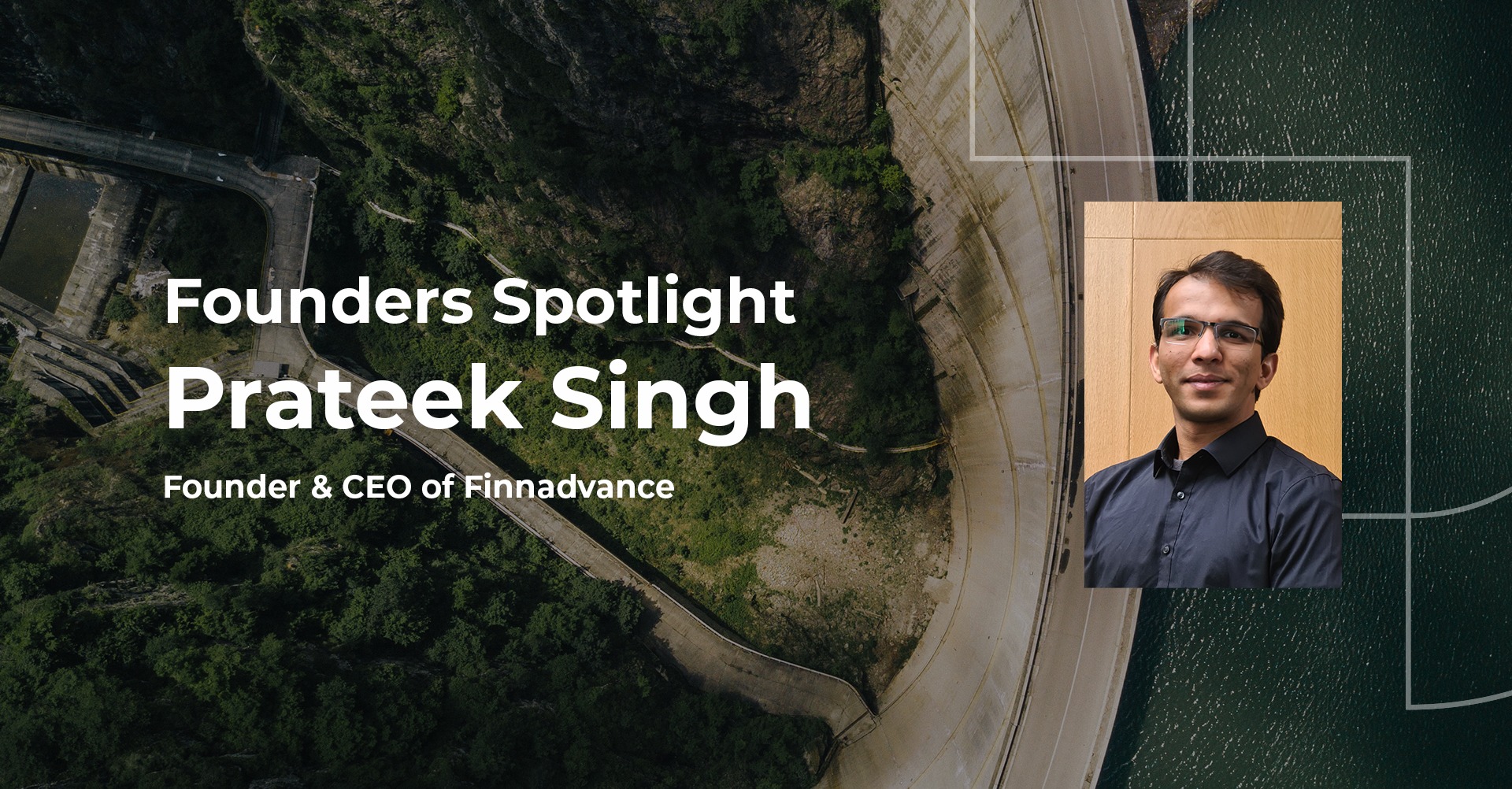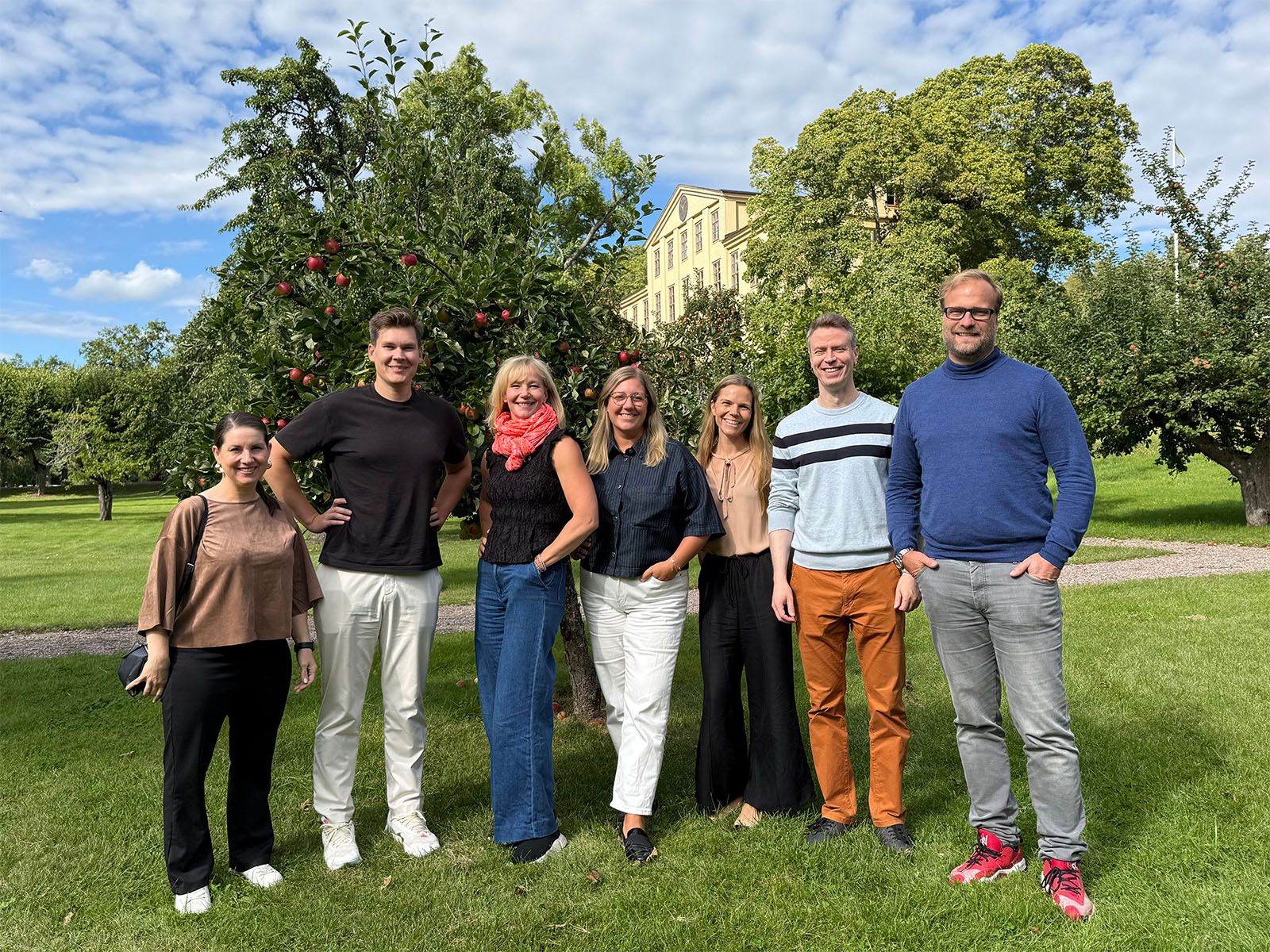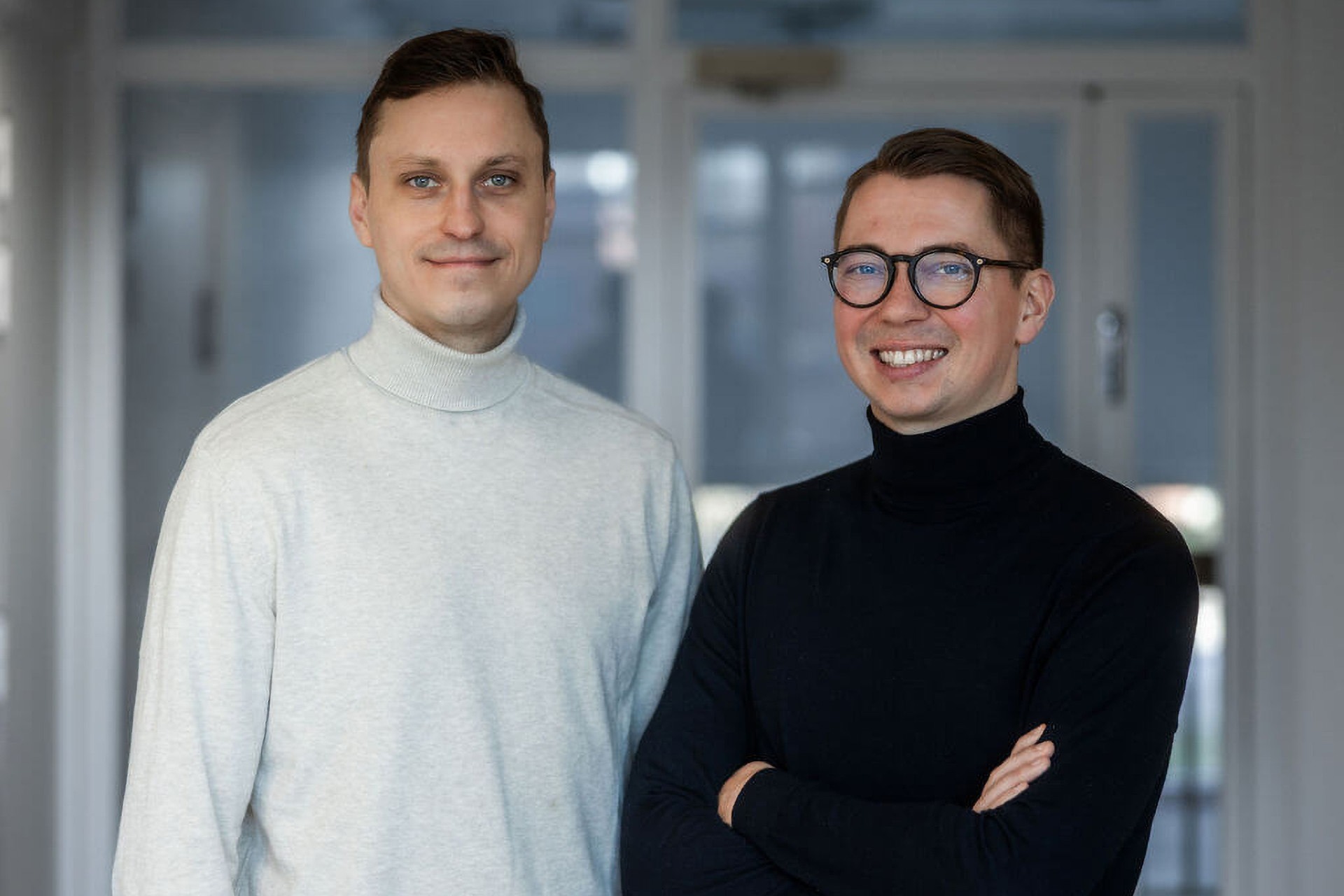Founders Spotlight blog series introduces Voima Ventures’ portfolio company founders. In this edition we will be discussing with the founder and CEO of Finnadvance, Prateek Singh. Finnadvance is a life sciences company developing organ-on-chip devices that have great potential in drug development.
Let’s start with an easy one: who is Prateek Singh? What are some of the crossroad decisions that have led you here and now as the founder-CEO of Finnadvance?
Originally from India, I am an engineer and a biochemist researcher. The first movie I saw in a cinema was Godzilla, and that was when I decided my dream was to be a scientist. Now, with 15 years of trial and error in academic research and experience from 31 countries, my dream is to fix what is broken in biotechnology research and development.
My family originates from a small rural village in India, and in the hopes of a brighter future my parents always wanted me to excel in studies. Not only traditional subjects like math or reading, but also in general knowledge, political sciences and logical reasoning. We would buy sets (a few hundred kilos in weight) of second-hand encyclopedias to be my everyday entertainment. It’s worth noting that we are now talking about times when mobile phones, Google and Instagram weren’t common in India.
I got to learn about scientists like Marie Curie, Leeuwenhoek and Tesla, who have ever since been my inspiration to create something without the excuse of not having enough resources. These scientists laid down the building blocks of technologies that we enjoy and take for granted now.
I never planned to be a CEO. I thought I was destined to be a legendary scientist working in a government lab until I retire. But, in a conventional academic research atmosphere, the standards are a bit lax and archaic. The lack of passion and publish-or-perish ideology meant most of the innovations that could be, would never see the light of day. I had a choice to make: I could either complain all day or do something about it. The decision to start Finnadvance was made.
Today, we are building strong foundations for traceable research experimentation and documentation, leading to safer and animal-reduced drug discovery. And with everything that has happened so far, I know that it was the right decision.
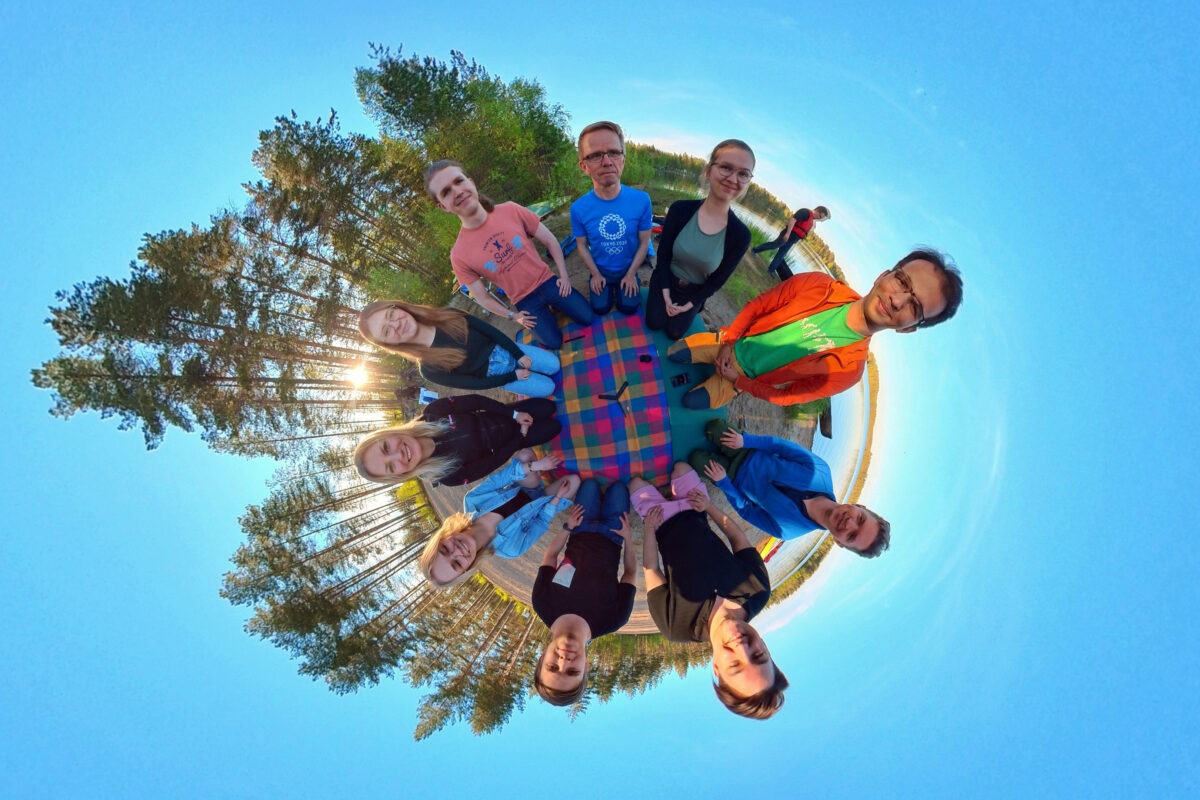
Summer 2021. The Finnadvance family on a team picnic in Oulu.
As a researcher turned entrepreneur – what factored into your decision to conquer the business world? And is there something you wish you’d have known before making the decision?
Good quality science has been coming out of leading institutions traditionally after decades of work. But for the past few years, research-based startups, like Oxford Nanopore technologies, have been able to remarkably shorten the time of taking a great technology, and putting it into use.
I knew the same implementation could and should be done for the field of drug discovery. With progress in AI based drug modelling, and advanced experimental designs, there was still no change in a typical drug development timeline (typically 10 years!).
At first, I tried to change this with publicly funded research.That didn’t go so well.Iwas not able to persuade to change the working habits of people who have been using the same methods for the past 20 years. Thanks to being exposed to a healthy amount of research-based startups in Switzerland and Germany, Finnadvance became my obvious next step.
Being a founder is a lonely job. A word of advice, albeit disheartening but nevertheless an important one in my opinion, to any other upcoming entrepreneur. I wish I understood this better when I started. Secondly, in the research field you have institutions which provide the space, hardware and support for research to be carried out. As a research startup, upfront costs of high quality instruments is a big factor which derails most entrepreneurs. This should be considered well in advance before approaching investors, or even planning the future of the company.
What does your role as a founder-CEO look like at Finnadvance?
Currently, I lead the scientific direction and IP generation alongside the CEO work. No two days are the same, but typically involves meeting some of the best research teams around the world, making collaborations happen. Fundraising and EU-funded projects leading is another major responsibility. Now, with the team size exceeding 20 people my focus is shifting more on building the culture and strategic vision of the company.
Being a technical founder means I understand the core of our work from the basic physics and biology of the technology all the way to how the final product is packaged, with what instrument, and what settings. I find that this is not typical of CEOs in other startups. But I feel it suits me and helps a lot in conversations as I am rarely left unable to answer a question.
I have contemplated having a financial (for the lack of a better word) CEO in my place if we go public or a similar situation requiring more financial knowledge arises. But I also think that knowing your product inside-out helps the counterpart understand the company as well as you do. It also helps if there is an issue in the development chain, and you clearly understand if the issue is technical, and how long it will take to be resolved, instead of getting it through a chain of command which might dilute or erode the information. For now, I feel confident to hold the reins of both CEO and scientific development.
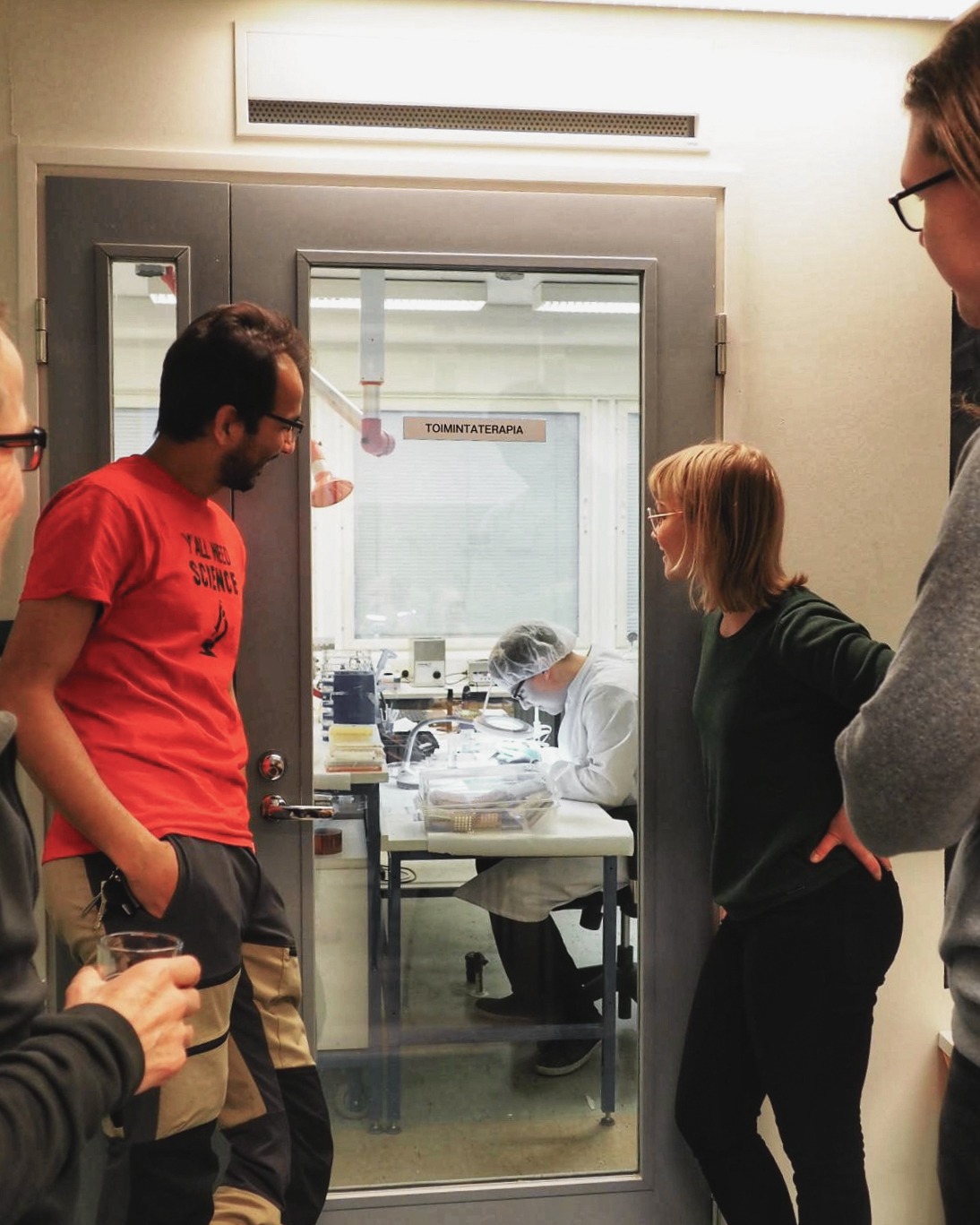
Jan 26th, 2021. Sebu working hard in the lab while the rest of the team is enjoying some coffee and planning their next move.
Who has been the most influential person or idol in your life?
Marie Curie. Radioactivity has been one of my study areas with hands-on experimentation. It would be an understatement to say that the work behind it has been greatly attributed to Marie Curie; she coined the word “radioactivity” after all! She worked in the era when women were banned from speaking at prestigious institutions like the Royal Institution in London. She worked selflessly, processing tonnes of raw ore to purify radium, a process now done fully automated, and would be unimaginable to be done by a human in 2022. Her work ultimately killed her as the radioactive materials she had been in contact with gave her cancer.
This passion she had for her work, I find difficult to explain. Why would someone go against all the odds, work without recognition, and never give up? I don’t know, but I seem to feel the same passion towards my work.
And lastly, what’s the best advice you’ve ever received as a founder?
To be honest, the jury is still out on this. Of course I’ve gotten a lot of good advice over the years but I’m not sure if there is any one I would crown as the best over the others.

